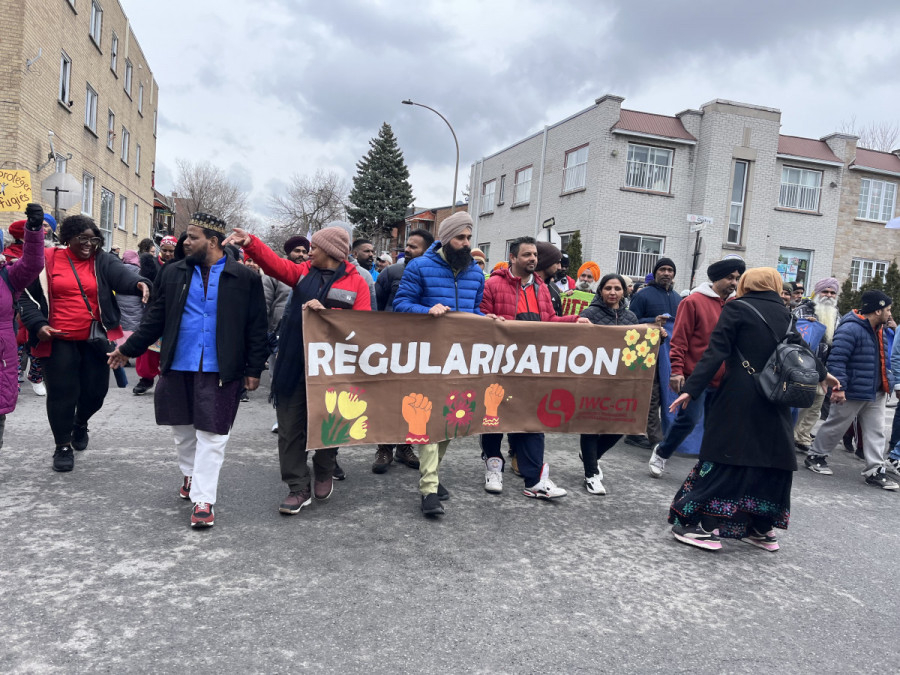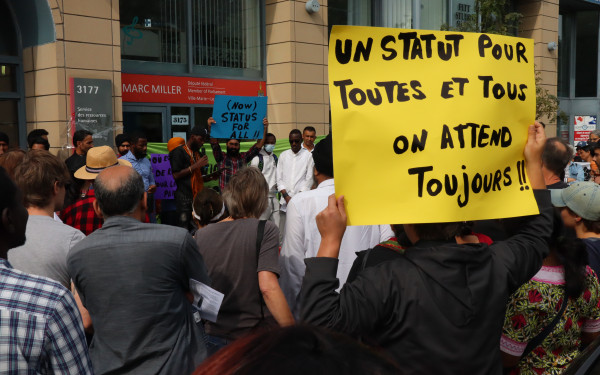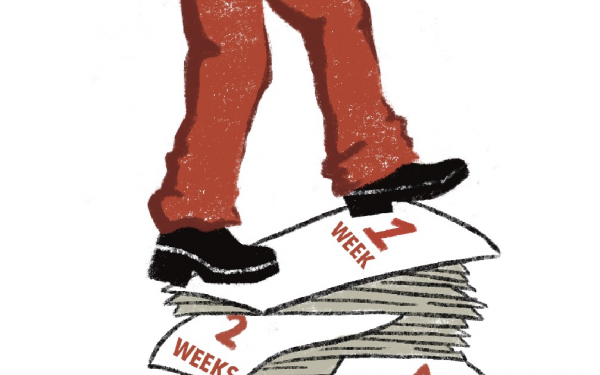Migrant spring: Montrealers demand country-wide regularization
Three years after promises of a regularization program, no changes have been implemented
Demonstrators mobilized in Montreal’s Parc-Extension neighborhood on March 17 for a protest organizers called the “migrant spring.” It happened in parallel with other protests all over the country organized by the Migrant Rights Network.
Attendees demanded the regularization of undocumented people living in Canada, and an end to the deportation and detention of those who don’t have status.
In December 2023, Immigration Minister Marc Miller announced his intention to create a path to citizenship for undocumented immigrants. Speakers at the protest said they have been waiting for almost three years for a regularization program promised by the Trudeau government, and that Miller’s plan, though a step in the right direction, might not be inclusive enough.
“We demand a regularization program that is accessible and that is without exclusions, for everyone,” said Susana Ponte Rivera, an organizer with the women’s committee of the Immigrant Workers Centre. She emphasized the necessity of a collaboration between the federal and provincial government to allow for a better treatment of migrants. “As we march, we will never forget that Canada is a colonial state. No one is illegal in a colonial state.”
Quebec Premier François Legault has previously said that Quebec cannot accommodate any more asylum seekers. In a meeting with Canadian Prime Minister Justin Trudeau on March 15, Legault asked for full power over immigration in the province—a request that was denied.
Ponte Rivera also highlighted the role of Canadian mining companies in Latin America in the “displacement of populations that cause people to migrate,” as well as denounced the new visa requirements imposed on Mexicans.
“It’s very ironic that in North America, in the land of imperialism, we value so much people doing the best they can to improve their living conditions, [following the] American dream, yet there is so much violent against migrants,” she said.
Some migrant workers brought up in their speeches the psychological and physical abuse they went through, citing the allegations of an airline caterer exploiting foreign workers made in October 2023. They emphasized how difficult it is to heal from these experiences and move on and asked for reparations and regularization for those who have been subject to labour exploitation.
In her speech, Ramatoulaye Diallo, the treasurer of the Conseil Central du Montréal Métropolitain, called for the immediate abolition of closed work permits, which she says facilitate abuse in the workplace.
“It’s like modern-day slavery,” said Diallo. “Let’s not be afraid of using these words. It’s systemic racism.”
One protester, who asked to remain anonymous for safety reasons, denounced the use of immigrants as scapegoats to current provincial and federal crises.
“[Politicians] have cut back on spending on social fields, education, health, housing… for decades, and now it’s very convenient that these migrants, who have driven out of their homes because of the interference of the Western governments, are going to take the brunt of the attack,” they said. “It’s unacceptable.”
Many shared this sentiment as chants called for solidarity with undocumented people, and the recognition of the importance of migrant workers and refugees in society.
“[Canadians] might get something back from the refugees who became permanent residents,” said Gaurav Sharma, an organizer with the Immigrant Workers Centre. “They might build businesses and revenue will regrow, children will go to schools and become good citizens.”
Diallo echoed his thoughts, stating that migrants contribute to the cultural wealth of the country.
“Thousands of women and men work in essential sectors, in hospitals, take care of our children, sick people, and older people. [They] work in all sectors, but our strength lies in our solidarity.”




_600_375_90_s_c1.jpeg)


